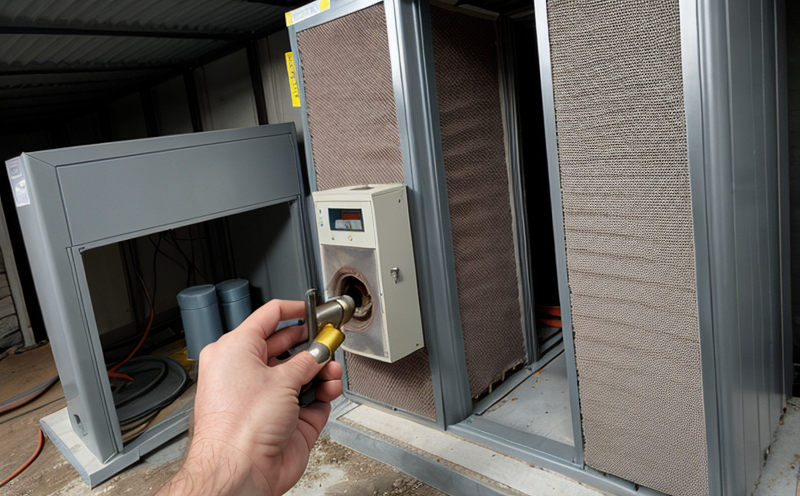GB T 11048 Cold protective clothing thermal insulation testing
The GB T 11048 standard is a crucial document in the textile industry, particularly for those involved in the development and quality assurance of cold-protective clothing. This standard provides comprehensive guidelines for evaluating the thermal insulation properties of cold protective clothing, ensuring that products meet the required performance levels for various environmental conditions.
Thermal insulation testing is essential because it ensures that textiles designed to keep workers warm in cold environments actually perform as intended. The test results can influence product design, material selection, and overall quality control processes. Understanding the detailed requirements of GB T 11048 helps companies meet regulatory standards and satisfy customer expectations.
The standard covers a range of tests that assess how effectively clothing maintains body heat in cold conditions. It specifies methods for determining the thermal resistance (R-value) and heat transfer coefficient of garments, which are critical parameters for evaluating their insulative properties. Proper testing ensures that workers remain safe and comfortable in harsh environments.
Before beginning any testing, it is important to carefully prepare the specimens according to GB T 11048 guidelines. This includes selecting representative samples from production batches or batches of similar products. Specimen preparation involves cutting the fabric into standard sizes and shapes as per the specified dimensions in the standard.
The testing process typically involves placing the prepared specimen between two plates maintained at specific temperatures to simulate real-world conditions. The equipment used for this purpose should meet the precision requirements outlined in GB T 11048, ensuring accurate measurement of thermal resistance and heat transfer coefficient. After performing the tests, detailed reports are generated based on the data collected during the experiments.
Understanding the nuances of GB T 11048 is vital for those involved in textile manufacturing or quality assurance. Compliance with this standard ensures that products meet safety and performance requirements set by regulatory bodies. By adhering to these standards, companies can produce high-quality cold protective clothing that effectively maintains body warmth.
| Standard | Description |
|---|---|
| GB T 11048-2009 | Method of Determining the Thermal Insulation and Heat Transfer Coefficient of Cold Protective Clothing |
| ISO 11077:2016 | Thermal insulation of fabrics—Determination by guarded hot plate method |
Applied Standards
The GB T 11048 standard is widely recognized and used in China for evaluating the thermal insulation properties of cold protective clothing. It provides a standardized approach to testing, ensuring consistency across different laboratories and manufacturers.
| Standard | Description |
|---|---|
| GB T 11048-2009 | Method of Determining the Thermal Insulation and Heat Transfer Coefficient of Cold Protective Clothing |
| ISO 11077:2016 | Thermal insulation of fabrics—Determination by guarded hot plate method |
Eurolab Advantages
EuroLab offers unparalleled expertise and state-of-the-art facilities for conducting GB T 11048 cold protective clothing thermal insulation testing. Our team of experienced professionals ensures that all tests are conducted rigorously, adhering to the highest standards.
- Comprehensive knowledge of Chinese and international standards
- Highly skilled technical staff with extensive experience in textile testing
- Access to advanced testing equipment tailored for thermal insulation evaluation
- Dedicated customer service for seamless support from start to finish
International Acceptance and Recognition
The GB T 11048 standard is internationally recognized, particularly in regions with similar climates or regulatory frameworks. Here are some key points regarding its acceptance:
- GB T 11048 is often referenced by organizations that set global standards for cold protective clothing.
- The results from tests conducted according to GB T 11048 are widely accepted in countries like Russia, Kazakhstan, and Mongolia.
- Many international manufacturers consider compliance with this standard as a key factor in their product development processes.





